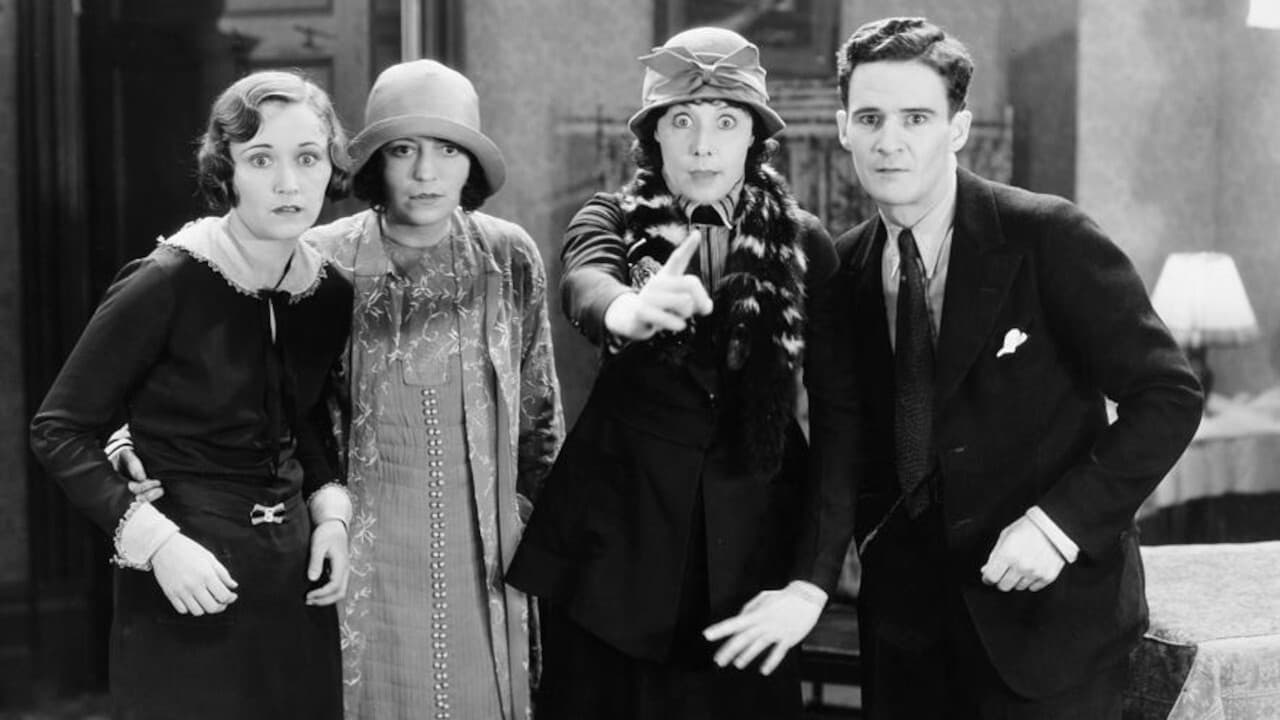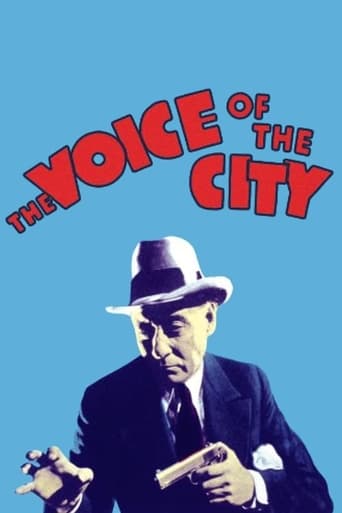

Awesome Movie
... View MoreEach character in this movie — down to the smallest one — is an individual rather than a type, prone to spontaneous changes of mood and sometimes amusing outbursts of pettiness or ill humor.
... View MoreThe film may be flawed, but its message is not.
... View MoreThis movie tries so hard to be funny, yet it falls flat every time. Just another example of recycled ideas repackaged with women in an attempt to appeal to a certain audience.
... View MoreOne of the worst films ever made, this dismal talk-fest posing as a crime drama is so incompetent in all departments, it's difficult to note which is worse - the script, the direction, the acting, the photography, the editing, the sets, the costumes, the budget or the music score. All of them rate a nice big zero. True, John Miljan in a typically smarmy gangster role tries to ham things up a bit, but even he is defeated by Willard Mack's totally lifeless direction, the hokey script, the scungy sets and the totally uninventive photography. In fact the whole film is photographed in a series of dialogue-heavy takes in which the camera seems to be bolted to the floor. In short, this is a movie that wouldn't do credit to a fifth-rate production house, so it's hard to believe that it actually hails from the halls of the leading movie production house in Hollywood, namely M-G-M!
... View More... since he wrote, directed, and starred in this very primitive early sound crime drama. No Citizen Kane of course, but considering the limitations Mack had to work with - who exactly would make a good performer in sound films? nobody knew, the camera could not move, and the overreaching of diction coaches, this one had me entertained and not just because of its novelty.Bobby Doyle (Robert Ames) has been wrongly convicted and sentenced to twenty years for killing a cop, odd in and of itself in 1929 since most people got the chair for that crime in those days. Good friend, Johnny the Hop (Clark Marshall), sends Bobby the ropes and knives he needs to escape from prison. So much for prison security. He escapes and beats it back to his old neighborhood where he plans to hook up with his girl and then leave town and try to clear his name too if he can. First, though, Bobby has to evade the cops led by Biff Myers (Willard Mack) who are determined to put him back behind bars. I'll let you watch and find out how it all turns out.Willard Mack had a pretty good reputation as a writer before and after this film, and he does a good job here too of penning a story that, although very easy to figure out, has some pretty good twists and turns. However, like most early sound directors and writers, he just can't overcome those over-aggressive diction coaches. They've got Bobby's girl Beebe (Sylvia Field) and Bobby's sister Mary (Duane Thompson) speaking like they're British nobility all the while slinging the inner city gun moll lingo with a heavy side order of ain'ts. It really is quite ridiculous. As a result of these strange performances, Ms. Thompson's career is pretty much over after 1929 and Sylvia Field has to wait until television comes along to restart her career. You might remember her as Mrs. Wilson on "Dennis The Menace".However, the rest of the cast is quite good. Honorable mention has to go to Alice Moe as Martha. She puts out the dense aura and sage one-liners that become the stock and trade of Zasu Pitts in the 30's and beyond. All of the male players ring true including Clark Marshall as Johnny, the cocaine addicted mastermind of Bobby's escape, and best of all John Miljan as the slimy gangleader whose tongue hangs down to his knees whenever he's around Beebe - if she wasn't so busy over emoting as the virginal true blue girlfriend to Bobby you'd think she'd have to notice this! As for atmosphere, Mack really understood the power of sound. There is a great police interrogation scene - maybe the first one ever filmed with sound - in which the cops turn out the lights and with just the power of dialogue and shadows on the wall come up with something that will take Warner Brothers another two years to get right.I'd highly recommend this one. For those of you not used to early sound film it has a couple of very talky static stretches in it in which nothing much meaningful is really said or done, but overall it's a worthwhile experience.
... View MoreThis early talkie crime story has a couple things going for it: a good story and performance by Willard Mack as Biff, and a good performance by Robert Ames as Bobby.Framed for murder, Bobby escapes from prison and is hiding out in an attic with the help of his pal Johnny (Clark Marshall) and girl friend Beebe (Sylvia Field). The cops are watching the friends and trying to find Bobby, but so is shifty Don Wilkes (John Miljan).The dialog is quite good. I especially liked the line about "iron drapes." The principal actors are all very good, although Field seems a bit too soft for the company she keeps. But she has a terrific attic scene with Ames, a mostly forgotten actor. Ames was in silent films and made his talkie debut in this one. He played both good guys and bad guys but his final film was released in 1932; he died in 1931.Ames had a short but solid movie career, working with the likes of Gloria Swanson, Edward G. Robinson, Marion Davies, Ina Claire, Mary Astor, Ann Harding, Anita Page, Vilma Banky, Betty Compson, Ruth Chatterton, Evelyn Brent, Constance Bennett, and Helen Twelvetrees.
... View MoreWell, there are certain "transition" films - those made in 1928 and released either that year or the next when 'silent' became 'sound' - that just don't quite make the grade today, no matter how hard one may try to appreciate them. I watched "Voice of the City" (1929), one of four "transition" films released last week by Warner Archive Collection, a film made in the latter part of 1928 and released in early 1929. Directed by and starring Willard Mack, the main star is Robert Ames, an actor almost totally forgotten today because he died of acute alcoholism only two years later in 1931. Also appearing with these two are Sylvia Field, Jim Farley, John Miljan, and others.The opening is exquisite. The camera shots and the marvelous editing are fluid, genuinely dynamic. Then the story begins with one of the most stagnant scenes I've ever witnessed on screen, made worse because the microphone is menacingly visible throughout the entire scene! And the players play to the microphone by their stagnant - unendingly stationary - placement before it - the blocking looking much like a very amateur play done in high school. What's worse, one of the female characters is so awful as to be embarrassing to watch! Indeed, the opening expositionary scene is so stagy that I felt as if I were in a small theater with only ten seats in it for the audience. Really bad. It gets better, but, honestly, not by much. After such a good two minutes of opening...This is a crime story - and a pretty good one at that. But by the end I was happy it was over. John Miljan has the best part, even better than Robert Ames, but he's not in the show enough, and he always needs great direction to give a good performance. Here he's adequate. Frankly, the best actor in the group is the director, Willard Mack. He ought to be decent: he'd been in films since 1913! He was a writer, director, actor, and producer, and even a dialogue coach on a couple of films. He could do it all, but not necessarily well enough when left all on his own...Do NOT rush out to buy this disc. It's a curiosity at best. History in the making, but history that - thank the Lord - is past, dead and gone.
... View More